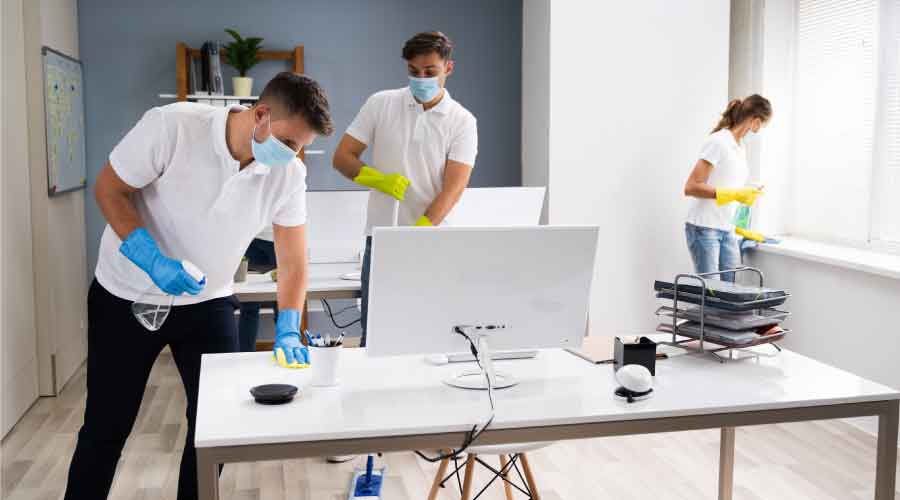
Groups Plan Resources to Improve IAQ
Group plans to develop toolkits and education programs for cleaning professionals responsible for education, offices, retail and healthcare facilities. September 26, 2022
By Dan Hounsell, Senior Editor
The Global Biorisk Advisory Council (GBAC), a division of ISSA, and Allergy Standards Limited (ASL) recently announced the formation of an educational working group focused on indoor air quality (IAQ) in the built environment.
The purpose of the new GBAC-ASL educational group is to develop toolkits and education programs for cleaning professionals responsible for education, offices, retail and healthcare facilities. The two organizations anticipate the group’s influence will have relevance and impact in communities where health inequity and financial challenges have the highest-burden costs.
“Providing timely and relevant knowledge and information to the industry on proper cleaning actions for improving IAQ is among our top priorities,” says Gavin Macgregor-Skinner, GBAC’s senior director. “Through our combined GBAC and ASL networks, we will work together to further ISSA’s mission of changing the way the world views cleaning.”
This working group is in part a response to the U.S. Environmental Protection Agency’s (EPA) release of the Clean Air in Buildings Challenge, a call to action and concise set of guiding principles and actions to assist building owners and operators with reducing risks from airborne viruses and other contaminants indoors. The working group’s goal is to provide cost-effective, resources for the cleaning industry to improve IAQ and the health of building occupants.
Planned topics include:
- the medical impact of poor IAQ
- indoor pathogens, including the coronavirus
- asthma and allergies
- in-building triggers.
Key learning objectives include:
- knowing the importance of language, such as IAQ, building- related illness and indoor environmental quality
- how dangerous chemicals, biologicals and allergens get into the air and what keeps them there
- understanding why a whole-building approach is needed to reduce the impact of asthma and allergies
- how managing a building with IAQ in mind can reduce the impact on building occupants
- developing a systematic approach to identifying, controlling and eliminating the sources of indoor pollutants and allergens
- how creating healthier offices and schools can have a huge impact on business.
Dan Hounsell is senior editor of the facilities market. He has more than 25 years of experience writing about facilities maintenance, engineering and management.
Next
Read next on FacilitiesNet











